Keynote 1 (Plenary) :
Engaging Diverse Learners in Mathematics Education through Data-driven Instruction in the Age of AI
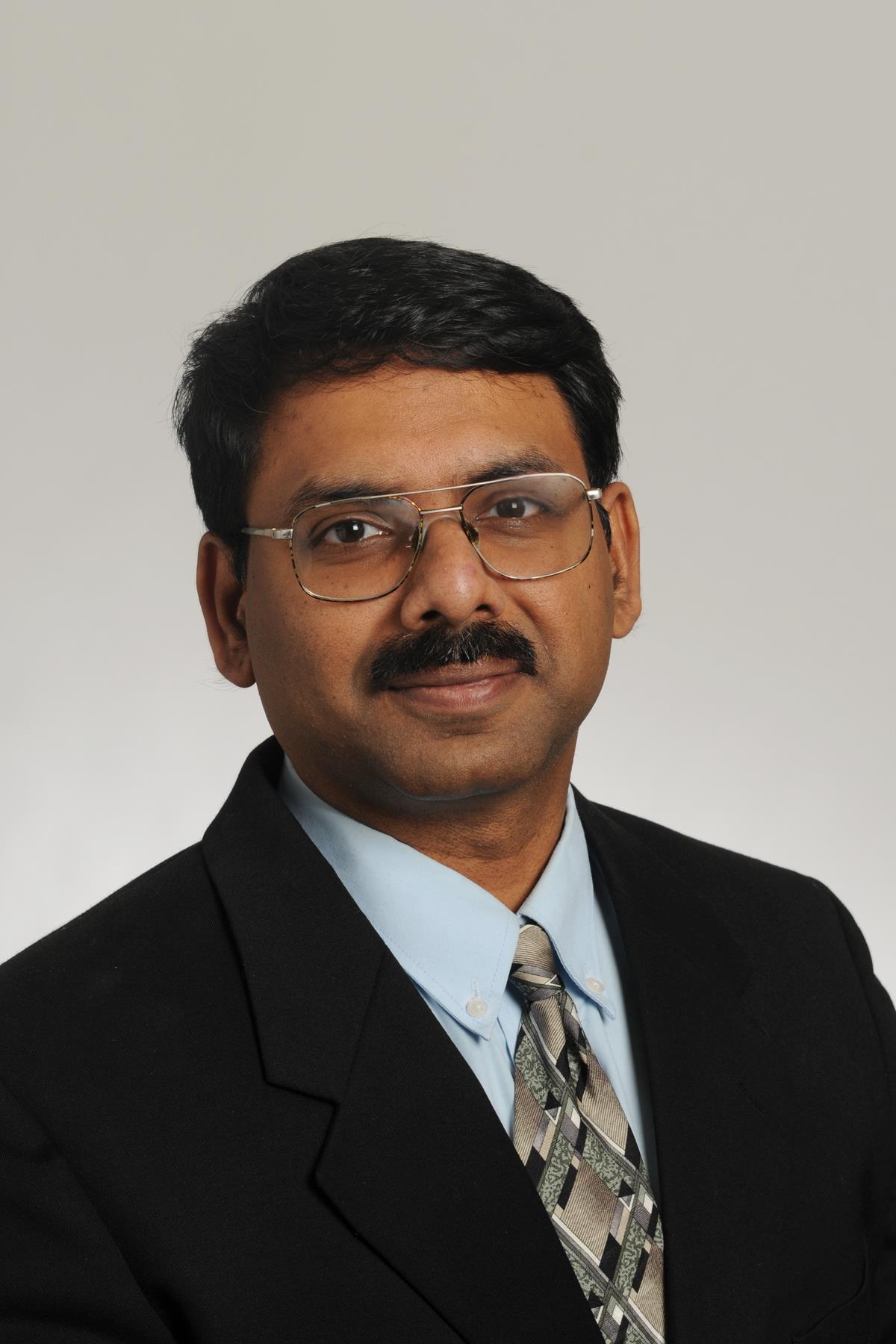
Professor Padmanabhan Seshaiyer
Director
George Mason University
United States
Biography. Dr. Padmanabhan Seshaiyer (Padhu) is a Professor and Director at George Mason University (GMU) where he has served in multiple leadership positions including the Associate Dean for Academic Affairs, Director of the STEM Accelerator Program and Director of the Center for Outreach in Mathematics Professional Learning and Educational Technology. During the last decade, he initiated and directed a variety of research, educational and outreach programs including faculty development, post-graduate, graduate and undergraduate research, K-12 outreach, teacher professional development, and enrichment programs, to foster the interest of students and teachers in STEM education at all levels. He works with Ministries of Education, Science and Technology as well as Universities across the globe to help them transform their institutional practices. In April 2019, he was selected as one of the “Figures that Matter” for his contributions to Academia and Society and was awarded an honorary doctorate by Vrije Universiteit Brussels.
Abstract. In this talk, the participants will learn about integrating data-driven instruction into mathematics education to enhance their own pedagogical practices through innovative educational frameworks and culturally inclusive teaching. Participants will also learn to increase student engagement in classrooms for diverse learners through equitable pedagogy via data-driven instruction in the age of AI. Discussions will also include the opportunity to nurture diverse learners on human-centered approaches for problem solving, that will help us to understand the lifelong skills and competencies required to close the gap between higher education and workforce development through mathematics education.
Keynote 2 (Primary):
Toward Mathematics Lessons that Engage Diverse Learners: Eliciting Children's Choice and Thinking
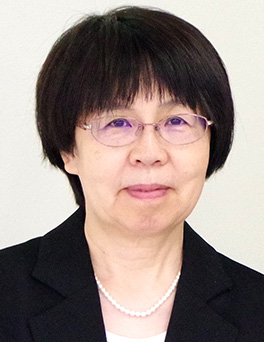
Professor Keiko Hino
Division of Teacher Professional Development
Utsunomiya University
Japan
Biography. Keiko Hino is a Professor at the Utsunomiya University in Japan. She works at the Division of Teacher Professional Development and supervises in-service teachers’ practical research on mathematics teaching and learning. She received her M.Ed. from Tsukuba University and her Ph.D. in Education from Southern Illinois University at Carbondale. Her major scholarly interests are students’ development of proportional reasoning, international comparative study on teaching and learning mathematics, and mathematics teachers’ professional development. From 2016 to 2017, she served as a Collaborator on Expert Work for the Improvement of the Course of Study at the Ministry of Education, Culture, Sports, Science and Technology (MEXT).
Abstract. How to enhance mathematics learning for diverse learners is an important issue worldwide. In this talk, I will report on recent developments in Japan by drawing on policy documents and related literature. I also show examples of efforts aimed at making the most of individual children in mathematics lessons. They come from my work with primary school teachers. Through these examples, I will discuss the significance of allowing children to choose their tasks and solutions for promoting mathematical thinking in each child, and for extending the viewpoint of looking at children in the teacher.
Keynote 3 (Secondary):
Enhancing Secondary Education with Artificial Intelligence
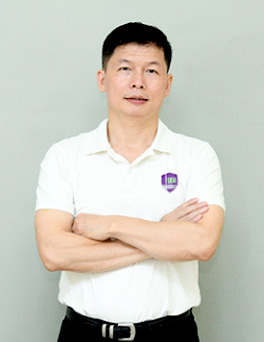
Professor Nguyen Chi Thanh
Dean of Faculty of Teacher Education
Vietnam National University of Education
Vietnam
Biography. Nguyen Chi Thanh is currently the Dean of Faculty of Teacher Education in Vietnam National University of Education from 2018 up to now. His academic career started as a mathematics teacher at high school in 1991-2001. After that he held his Master and PhD degrees from Grenoble University, France. And, he had a Post-Doctorate at the LDAR Research Center in University of Paris VII, France. After he came back to Vietnam, he had a post of university faculties. Also, he was invited as visiting professor for some universities such as Dalarna University (Sweden), Hiroshima University (Japan). He has been the Head of Department of Scientific and International Cooperation Affairs in 2013-2014. He has been working at some private educational system for several years as Director of Assessment and then as principal from 2015 to 2018. His research interest is about using technologies in mathematics education, teacher professional development and didactic of mathematics.
Abstract.
The rapid development of artificial intelligence (AI) is opening up new opportunities to improve and augment educational practices at the secondary school level.
This presentation will explore the current and potential applications of AI to enhance learning experiences and outcomes for students.
We will examine how AI techniques like machine learning and natural language processing are being applied to intelligent tutoring systems that can provide personalized instruction and feedback tailored to each student's needs and learning style. The use of AI for automated grading of assignments and assessments will also be discussed.
AI-powered teaching assistants and chatbots are emerging to serve as digital mentors and advisors to students on topics like college admissions, course selection, and career planning. The pros and cons of these AI-driven support tools will be analyzed.
Ethical considerations around student privacy, algorithmic bias, and the human-AI classroom dynamic will also be explored in depth. Best practices for responsibly incorporating AI into school systems will be provided.
Key words: AI, secondary education, application, challenges
Keynote 4 (Junior College):
Why Mathematics is Part of Liberal Education
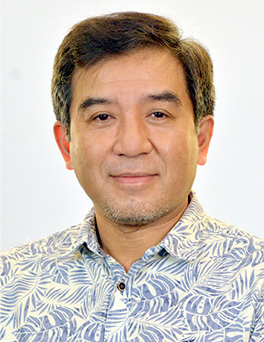
Professor Fidel Nemenzo
Institute of Mathematics
University of the Philippines Diliman
Philippines
Biography. Fidel Nemenzo is Professor of Mathematics and served as Chancellor (2020-2023) and Vice Chancellor for Research and Development (2014-2020) of the University of the Philippines Diliman. He also headed the university’s Data Science for Public Policy Program and Science and Society Program. He studied in UP Diliman and Sophia University in Tokyo, where he obtained his Master of Science and Doctor of Science degrees. Prof Nemenzo was President of both the Southeast Asian Mathematical Society and the Mathematical Society of the Philippines, and has held research and teaching posts in Singapore, Tokyo, Amsterdam, Munich, Phnom Pehn, and Beijing. His areas of research are coding theory, algebraic number theory, and elliptic curves.
Abstract. The modern world, ruled by new and rapidly evolving technologies, is a fiercely competitive environment for graduates of our schools. Its central feature is the dizzying pace of change we see not only in technology, but our modes of living. Liberal education – which promotes critical thinking and a broad understanding of different disciplines and their connections – is a crucial tool for preparing students to thrive amidst this flux. In this talk, I will discuss the intrinsic connection between mathematics and the liberal education. Mathematics not only fosters critical thinking, problem-solving skills, and intellectual curiosity across diverse disciplines, it also offers a universal language for understanding complex phenomena and promoting interdisciplinary collaboration.
Keynote 5 (Primary):
Engaging Learners’ Heads, Hands and Hearts in Primary Mathematics Learning via Metacognitive Pathways
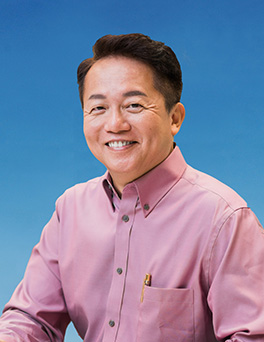
Professor Lee Ngan Hoe
Mathematics and Mathematics Education AG
National Institute of Education
Nanyang Technological University
Singapore
Biography.
Lee Ngan Hoe is an Associate Professor in the Mathematics and Mathematics Education Academic Group in the National Institute of Education, Nanyang Technological University (NIE, NTU), Singapore.
He holds a BSc (1st Class Honours in Pure Mathematics) from Monash University, Australia; a Dip Ed (Distinction) from the National University of Singapore; a MScEd from Southern Illinois University at Carbondale, USA; and a PhD in Education from the NIE, NTU, Singapore.
At NIE, he teaches pre- and in-service as well as graduate courses in mathematics education and supervises postgraduate students pursuing Masters, EdD, and PhD degrees.
He was attached to St. Ambrose University under the Fulbright Scholar-in-Residence Program from August 2013 to May 2014.
He won the NIE Excellence In Teaching Commendation Award in 2004, 2005, 2007, and 2016, and the NTU Nanyang Education Award (School) in 2016.
His research and publication interests include the teaching and learning of mathematics at all levels, covering areas such as mathematics curriculum development, metacognition and mathematical problem solving / modelling, and constructivism in mathematics education.
In the last five years, he has also extended his work on metacognition from the teaching and learning of mathematics to other subjects.
Abstract. In this talk, the speaker will first present a broadened conception of metacognition beyond the knowledge and regulation of cognitive resources, to include the knowledge and regulation of affective and psychomotor resources. He will then demonstrate how the learning of primary mathematics can tap metacognitive pathways through such an operationalization of metacognition to engage learners’ heads, hands and hearts. He will argue that this not only prepares our learners to build the 21st century competency of being metacognitive, but also addresses other issues that are close to the hearts of primary mathematics teachers: the need for young learners to stay curious and to actively engage in learning mathematics while also managing their anxiety in the learning process.
Keynote 6 (Secondary):
Teacher-designed Instructional Materials as a Tool to Engage Head, Hands, and Heart
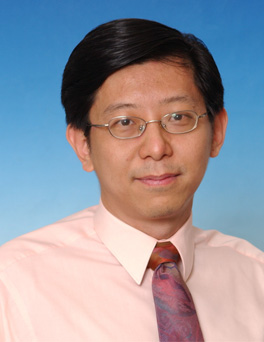
Professor Leong Yew Hoong
Mathematics and Mathematics Education AG
National Institute of Education
Nanyang Technological University
Singapore
Biography. Leong Yew Hoong is an Associate Professor at the National Institute of Education, Nanyang Technological University, Singapore. Prior to his academic career, he was a mathematics teacher in a number of Singapore institutions – Secondary School, Junior College, and Polytechnic. He began his deep interest in mathematics instruction as a teacher and it has carried over to his research in the span of the last 20 years. His research started with examining the complexity of classroom teaching, which led him subsequently into other interconnected areas, such as mathematics problem solving, teacher professional development, and teacher-designed instructional materials. He publishes widely on these areas in well-known mathematics education journals and books. He is currently an Editor of the Mathematics Education Research Journal.
Abstract. This may come as a surprise to most: Singapore secondary mathematics teachers commonly do something that almost no teacher in other parts of the world does – the design of instructional materials (popularly known here as ‘Worksheets’) for their students. The talk will cover interesting design moves behind this unique Singapore teachers’ practice. That these materials were designed to engage the Head and Hands of students is well known. Surprisingly, there is evidence to suggest that they can also be used to draw the Heart.
Keynote 7 (Junior College):
Contextual approach to teaching mathematics
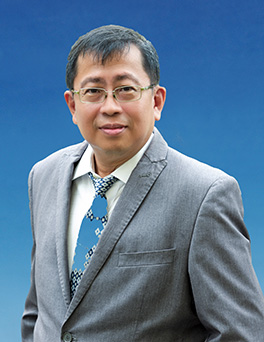
Professor Toh Tin Lam
Mathematics and Mathematics Education AG
National Institute of Education
Nanyang Technological University
Singapore
Biography. Tin Lam TOH is an Associate Professor from the Mathematics and Mathematics Education Academic Group in the National Institute of Education. Prior to joining NIE / NTU in 2001, he was the Head of Mathematics Department in a Singapore mainstream school. He obtained his PhD on Mathematics in 2001. After that he continued with his research in mathematics and started his mathematics education research. He published in international refereed journals for both mathematics and mathematics education.
Abstract. Currently, most of mathematics instruction at the A-Levels focus on engaging students with many tasks which are deemed essential to prepare students for the national examination. In this talk, I will discuss an approach of engaging students in deep and meaningful learning by appropriate use of instructional tasks.